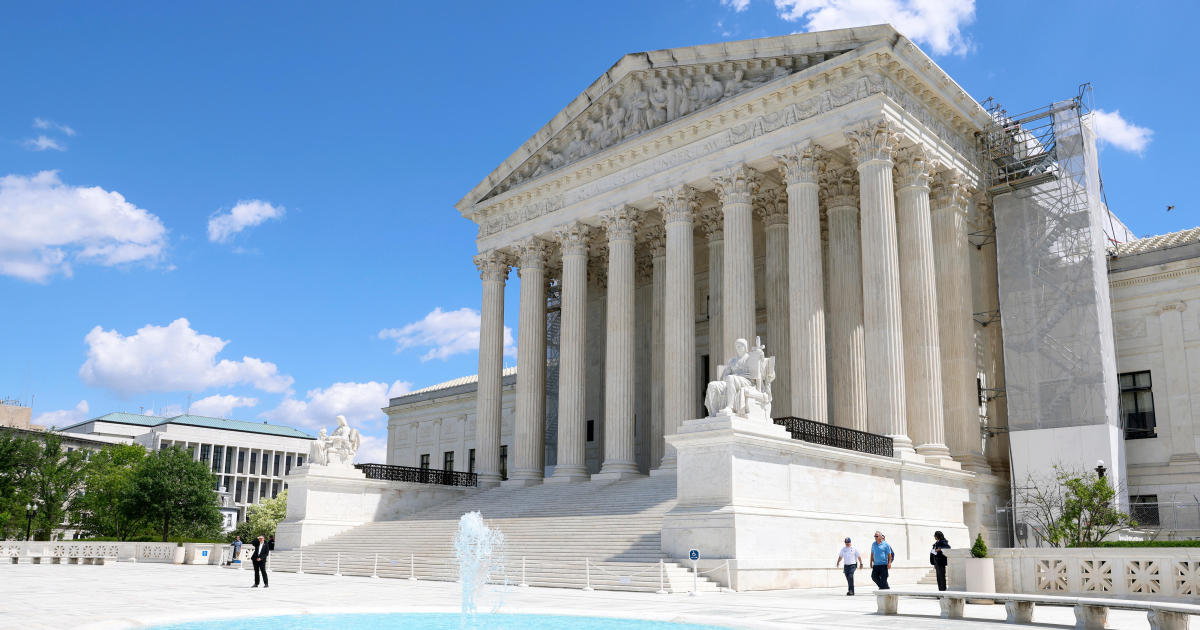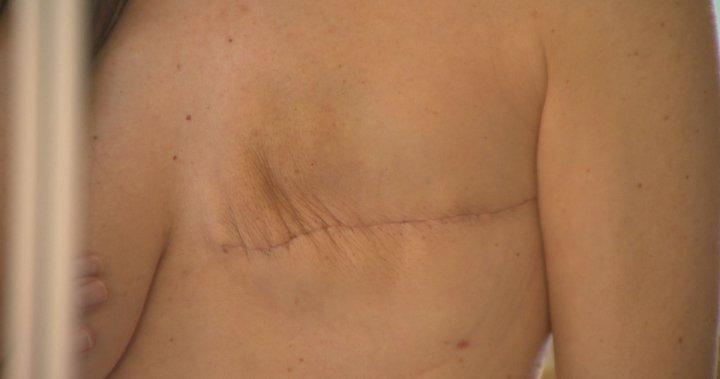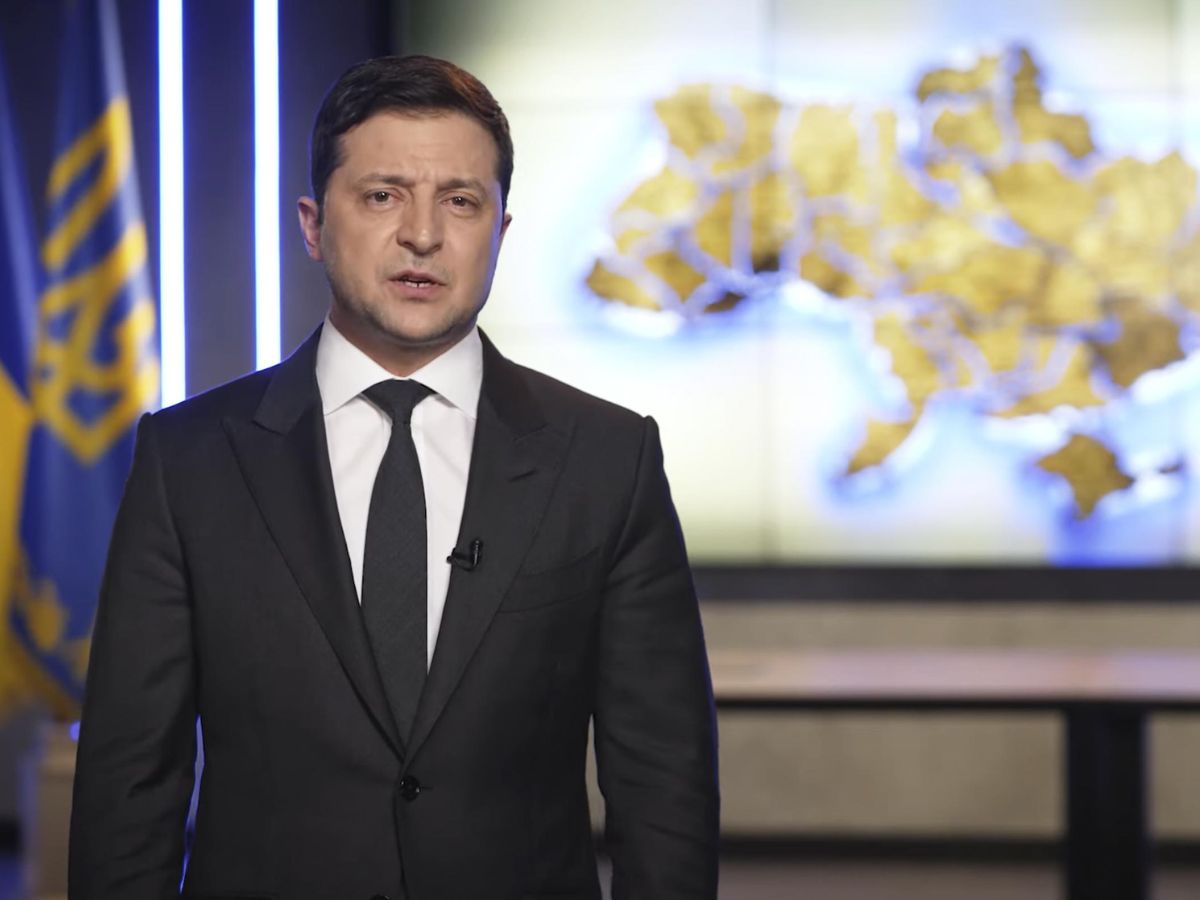Washington —The Supreme Court convened Thursday for over 2 1/2 hours to consider whether former President Donald Trump is entitled to broad immunity from federal prosecution, jumping into a blockbuster dispute that will be critical to the fate of his 2020 election case in Washington, D.C.
At issue in the case known as Trump v. United States is whether the former president can face criminal charges for allegedly official acts while he was in the White House. The dispute, which arose from the federal prosecution by special counsel Jack Smith, is the second to come before the justices in their current term with significant consequences for Trump’s political future.
The justices are considering whether the doctrine of presidential immunity extends to criminal prosecution for acts undertaken by a former president while he was in office.
The Supreme Court ruled in 1982 that a president is immune from civil liability for acts taken within the “outer perimeter” of his official duties. But it has never before addressed whether that sweeping immunity protects the nation’s chief executive from criminal charges. Trump is the first former president in the nation’s history to be prosecuted. He has pleaded not guilty to all charges and has claimed the cases against him are politically motivated.
Oral arguments
During the arguments, Justices Sonia Sotomayor and Samuel Alito focused on what constitutes an official act. Sotomayor some of the allegations in Smith’s indictment and asked Trump attorney D. John Sauer to delineate what a president could plausibly be allowed to do without being charged.
“What is plausible about the president insisting and creating a fraudulent slate of electoral candidates? Assuming you accept the facts of the complaint on their face, is that plausible, is that within his right to do,” Sotomayor asked Sauer, who responded, “Absolutely,” and began to cite acts taken by President Ulysses S. Grant. Sotomayor cut him off and returned to the fake electors, inserting, “Knowing that the slate is fake, that they weren’t actually elected?
Justice Neil Gorsuch raised the possibility of further proceedings in Judge Chutkan’s court to determine what part of the alleged conduct in the Trump indictment might be official in nature.
Under questioning by Justice Amy Coney Barrett, Trump’s attorney conceded that while the former president’s legal team disputes the allegations in the indictment, some of the conduct described in the charges — like hiring private attorneys and implementing post-election campaign plans — are private acts. But then, after Justice Elena Kagan pressed the issue further, Sauer responded by saying other acts, like arranging an alternate slate of electors and pressing state election officials are official acts that should be shielded from prosecution.
Justice Katanji Brown Jackson took a different approach, asking, “Why is it that the president would not be required to follow the law when he is performing his official acts?” She said she worried not that a president might be constrained by fear of future prosecution, but that a lack of accountability might “empower” a sitting president to break the law in the future.
“If someone with those kinds of power, the most powerful person in the world…could go into office knowing that there would be no potential penalty for committing crimes, I’m trying to figure out what the disincentive is from turning the Oval Office into the seat of criminal activity in this country,” she said to Sauer, who responded that the constitutional checks of impeachment and congressional oversight were sufficient and lawful.
Counselor to the special counsel and former Deputy Solicitor General Michael Dreeben asserted that prosecutors were “not endorsing” a “regime” in which a former president could be prosecuted after leaving office for all conduct.
Chief Justice Roberts, Thomas and Alito pressed Dreeben on the safeguards that exist to protect presidents from being unduly charged. Roberts took issue with the lower court’s opinion that allowed the prosecution to go forward, calling its reasoning “tautological.”
In his view, the lower court held, “A former president can be prosecuted because he’s being prosecuted.” He added, “I would not suggest that that’s either a proper approach in this case or certainly not the government’s approach.”
Dreeben said the grand jury process and legal doctrine that dictates the sitting president’s public authority deter undue prosecutions. And under questioning from Gorsuch, Dreeben conceded that there is what he said was “small set” of “core” conduct for which presidents can’t be prosecuted.
Alito pushed further, asking Dreeben if he believed that a president would be vulnerable to criminal charges if he made a mistake while in office: “You don’t think he is in a particularly precarious position?”
Sotomayor reflected during the arguments that the judicial system “has layers and layers of protection for accused defendants, in hopes that the innocent will go free.” She conceded, “We fail routinely, but we succeed more often than not.”
“Having said that, Justice Alito went step by step through all the mechanisms that could potentially fail,” Sotomayor continued. “In the end, if it fails completely, it’s because we’ve destroyed our democracy on our own isn’t it?”
Dreeben offered that the Framers contemplated that the Framers contemplated that abuses would be limted, that “the ultimate check is the goodwill and faith in democracy.”
The stakes
The Supreme Court has never before addressed whether a former president is immune from criminal prosecution, and the outcome of the legal battle will determine whether Smith’s case heads to trial. The court has a 6-3 conservative majority, and Trump appointed three of its members.
If Trump prevails, it would bring his federal prosecution in Washington to an end. But if the Supreme Court sides with the special counsel — who has succeeded before two lower courts — and the justices reject Trump’s claims of broad immunity, proceedings in the case could resume. It remains unclear, however, how soon after a trial would begin.
A victory for Smith would also further raise the stakes of the 2024 election for Trump, since he could order the Justice Department to drop the criminal charges against him if he retakes the White House.
The arguments will be the last of the Supreme Court’s current term, during which the justices have taken up numerous disputes that have directly or indirectly involved Trump. The Supreme Court in March said states cannot keep Trump from the 2024 ballot using a rarely invoked provision of the 14th Amendment, overturning a blockbuster decision from Colorado’s highest court that deemed him ineligible for the presidency because of his actions surrounding the Jan. 6, 2021, assault on the U.S. Capitol..
The proceedings are also taking place alongside the historic criminal trial involving Trump taking place in Manhattan, where he is charged with 34 state felony counts for falsifying business records. The former president pleaded not guilty to those charges, and unsuccessfully attempted to have them tossed out on immunity grounds. The judge overseeing that trial denied Trump’s request to be excused to attend the Supreme Court arguments.
The Trump immunity case
The dispute over presidential immunity stems from four criminal counts brought against Trump in connection to his alleged attempt to subvert the transfer of power after the 2020 presidential election. Trump pleaded not guilty to all counts last year, and proceedings in the case have been on hold for months while the immunity matter weaved through the federal courts.
Two lower courts in Washington have rejected his claim that he’s shielded from criminal charges tied to conduct that happened while he was still president. His attorneys have called on the Supreme Court to reverse those rulings, telling the justices in briefs that Trump’s actions after the election were “official” in nature and therefore protected from prosecution.
The question before the justices is “whether and if so to what extent does a former president enjoy presidential immunity from criminal prosecution for conduct alleged to involve official acts during his tenure in office.”
Pointing to the historic charges against Trump, his lawyers have said that their unprecedented nature is evidence that presidents are broadly shielded from criminal charges.
“From 1789 to 2023, no former, or current, president faced criminal charges for his official acts — for good reason,” they wrote in a filing last month. “The president cannot function, and the presidency itself cannot retain its vital independence, if the president faces criminal prosecution for official acts once he leaves office.”
Curtis Means-Pool / Getty Images
Trump’s lawyers have claimed that his actions between the November 2020 election and Jan. 6 Capitol attack were undertaken as part of his official duties, not in his capacity as a presidential candidate.
“Once our nation crosses this Rubicon, every future president will face de facto blackmail and extortion while in office, and will be harassed by politically motivated prosecution after leaving office, over his most sensitive and controversial decisions,” Sauer warned the Supreme Court in the filing. “That bleak scenario would result in a weak and hollow President, and would thus be ruinous for the American political system as a whole.”
Trump’s legal team has also claimed that presidents can only be prosecuted if they were first impeached by the House and convicted by the Senate. He was impeached by the House on a single article of incitement of insurrection after the Jan. 6, 2021, attack on the U.S. Capitol but acquitted by the Senate.
The special counsel, meanwhile, argues that the Constitution does not vest a president with absolute immunity from criminal prosecution, especially when tied to the private act of campaigning.
In a brief filed to the Supreme Court earlier this month, Smith’s team wrote, “No presidential power at issue in this case entitles the president to claim immunity from the general federal criminal prohibitions supporting the charges: fraud against the United States, obstruction of official proceedings, and denial of the right to vote.”
The special counsel alleges that Trump engaged in a criminal conspiracy to hold onto power, and his actions were all taken to achieve a private goal: to remain in the White House for a second term.
The special counsel wrote earlier this month that there are “layered safeguards” when a criminal case is brought that “provide assurance that prosecutions will be screened under rigorous standards and that no president need be chilled in fulfilling his responsibilities by the understanding that he is subject to prosecution if he commits federal crimes.”
Smith’s team refuted the claim from Trump’s lawyers that the charges against the former president lacked historic legal precedent.
“The absence of any prosecutions of former presidents until this case does not reflect the understanding that presidents are immune from criminal liability; it instead underscores the unprecedented nature of petitioner’s alleged conduct,” the special counsel argued.
Prosecutors wrote in their filing that even if the Supreme Court finds that a former president cannot be criminally prosecuted for official acts, Trump’s alleged conduct was a “private scheme with private actors to achieve a private end: petitioner’s effort to remain in power by fraud.”
A plan to overturn the outcome of the presidential election is the “paradigmatic example of conduct that should not be immunized, even if other conduct should be,” they said.
Lower court losses
The trial in Trump’s case was set to begin in March, but U.S. District Judge Tanya Chutkan, who was assigned to preside over it, scrapped that schedule after the former president appealed her initial ruling that he can be criminally charged.
Proceedings have been on hold since December, and even if the Supreme Court clears the way for Trump’s prosecution, its consideration of the issue has delayed the case.
In her December ruling rejecting sweeping immunity for Trump, Chutkan wrote that “the United States has only one chief executive at a time, and that position does not confer a lifelong ‘get-out-of-jail-free’ pass” from prosecution.
The former president appealed that decision. In an attempt to speed up the case, Smith asked the Supreme Court to bypass the U.S. Court of Appeals for the District of Columbia Circuit and take the rare step of considering the immunity issue before the appeals court ruled.
The justices rejected that request, allowing the D.C. Circuit to hear and decide the case first.
The three-judge panel of judges on the appeals court unanimously ruled against Trump in February, allowing the prosecution to move forward.
The former president then asked the Supreme Court to intervene, which it agreed to do in late February. A decision is expected by the end of June.







